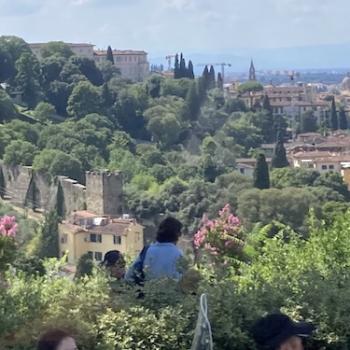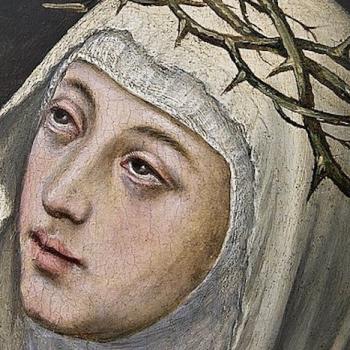All Things in Relation to God
The goal of all Christian doctrine is to name and perceive “all things in relation to God, not only as their source but also as their goal, and as the origin of all form and character.” With this bold opening, my friend Andrew Davison launches his nearly 400-page tome of systematic theology. That “in relation to” phrase forms the center of his vision. To put it simply: participating in God is the beginning and end of all Christian life and language.
Participating in God is, most obviously, what Christians mean when we talk about being creatures of a Creator. Plato told a story of creation in which the creator works with chaotic elements to try to form something orderly out of them. Those primal elements do not participate in God, but only do their best to be obedient. Aristotle and the later Greek tradition told a story of creation in which God is, as Davison puts it, “blissfully unaware of the world.” But Christians see all being as dependent on and originating from a God who made us on purpose.
What does that tell us about who we are?
Not God but Godlike
Well, first, that there is something beautiful about us. I don’t use the language of a “divine spark” within us. I don’t say it like that because I think that fudges the distinction between God’s being and ours. God isn’t the sort of being who can “spark off” in fragments, which is what is actually happening when flint or metal throws a spark. But let’s say instead that the spark of life within and among us is what God’s looks like when God shares God’s life with the world. Maybe like a really good painting of fire is not the fire, but what the fire looks like when it’s put on a 2-dimensional canvass. The painting is not the fire, but it participates in fire by being fire-like.
Participating in God is something like being a painting of fire.
This means that the stuff we are made of is not God, but it is godlike. This difference between God and us can, in fact, be overstated. Davison is critical of theologians whose concern for God’s majesty translates into an emptying out of human goodness. God is holy and good; does that mean I have to say that I am not? If I say “creation is holy and good,” does that mean that I can’t tell the difference between God and creation? Davison thinks we don’t have to choose. God is holy and good because that is who God is eternally. Creation is holy and good because creation shares, participates, in the being of God.
Creation is not so much like a cook making a bowl of soup, he says, as like a singer singing a song. Think of the song of the Silmarils in Tolkien, or the song of the lion that created Narnia. In this case, though, the point is that God is still singing: to be created by God is to have an existence that unfolds in time as a response to God’s endless song.
Participating in God as a Diagonal Way
There is a diagonalizing to this, as you might suspect. Here’s Davison:
In a vertical fashion, the creatures receives its being entirely from God, but rather than that eclipsing the horizontal story of having creaturely processes, this act of God is what creates the creaturely unfolding.
The “vertical” act of God—God saying, “let there be…”— is what creates not just the ox and lamb, but the ox-ing of the ox and the lamb-ing of the lamb. The “horizontal” processes of created things.
There’s a deep compatibility of creation and evolution here. Davison, who has a background in biology, is perfectly situated to show it to us. We get in a tangle when we think that the biological and ancestral adventure of the sheep through time is something the sheep does rather than something God does. It is both. The evolution of the sheep is participating in God.
This diagonal is the secret of my very being. When I go out and see a neighbor at the mailbox, or talk with a student about a hard moment on campus, I am “processing” who I am as God’s creature. I am discovering in my existence what God means when God sings “Tony.” This is the horizontal that slopes upward toward God’s “let there be,” even if I am not conscious of it in that moment.
Becoming God’s and gods (but not God)
Davison ends his book with a line from the Epistle of James, which could function as an epigraph to his entire vision. “Every generous act of giving, with every perfect gift, is from above, coming down from the Father of lights, with whom there is no variation or shadow due to change.”
We are not God. But we are God’s. And so, as Jesus put astonishingly put it, and without challenging the “horizontal” integrity as creatures, we are gods. We are, that is, welcome inheritors of divine participation from the One who is pleased to share it with us.











